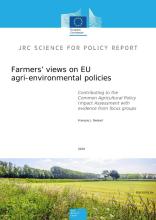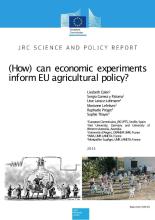Why behavioural insights matter
Farmers regularly take decisions that affect both their profitability and the environment. For instance, they choose which crop to grow, whether to invest in a new barn, how much pesticide to spray, and whether to join a cooperative.
Behavioural insights can help us better understand how and why farmers make these decisions. For instance:
- mutual trust is fundamental for farmers to join producer organisations.
- farmers are more likely to establish filter strips when they perceive clear environmental benefits for watershed protection.
- farmers tend to adopt organic practices more if they sense social pressure in that direction.
Understanding these behavioural factors can contribute to more effective and efficient agricultural policies.
How behavioural insights can help
The post-2020 reform on the EU Common Agricultural Policy embeds behavioural evidence in the following documents:
- The background document on the economic challenges facing EU agriculture (PDF) (Section 3.3) discusses behavioural factors that influence farmers’ decisions to join producer organisations or to adopt new technologies.
- The background document on the climate and environmental challenges facing EU agriculture (PDF) (Section 3.2) analyses how behavioural factors farmers’ decisions to adopt sustainable practices..
- The impact assessment accompanying the Proposals for the new Common agricultural policy (PDF) includes behavioural evidence (Annex 8) on farmers' views on EU agri-environmental policy gathered through focus groups
Behavioural experiments can also help assess in advance the effect of policy options on farmers' decisions.
Ongoing projects
- Barriers to implementing EU green policies: a behavioural perspective
- European Consumer Food Waste Forum
Selected publications


